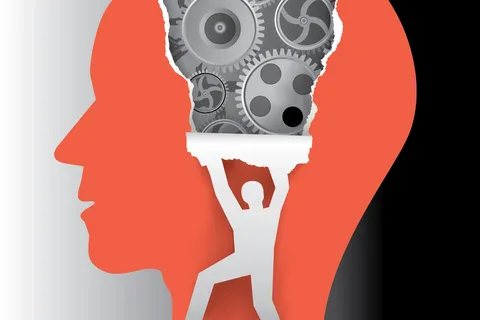
Introduction
Gaming is a popular form of entertainment that offers players a chance to escape reality and engage in immersive, interactive experiences. However, gaming errors such as losing a match, making a mistake, or encountering a bug can have a significant impact on a player’s mental well-being. In this article, we will explore the psychological impact of gaming errors and offer some coping strategies for gamers to help them manage their emotions and maintain a healthy gaming experience.
Understanding the Psychological Impact of Gaming Errors
Gaming can be a highly emotional experience for players, with the highs of victory and the lows of defeat often causing significant emotional reactions. However, while these emotions are a natural part of the gaming experience, it is important to understand the potential psychological impact of gaming errors.
The Frustration of Failure
The frustration of repeated failure can cause feelings of anger, anxiety, and depression, which can have a negative impact on a player’s overall mental health. When a player fails to achieve their objectives or loses a match, it can lead to a sense of disappointment, hopelessness, and low self-esteem. This can be particularly challenging when the player is heavily invested in the game, or when they have been trying to achieve their goals for a long time. In some cases, the frustration can even lead to aggressive behavior, such as throwing controllers or shouting at other players.
The Sting of Criticism
Negative feedback from other players or critics can lead to feelings of shame, humiliation, and self-doubt, which can further exacerbate the negative impact of gaming errors. This is particularly relevant in online multiplayer games, where players are often judged by their peers based on their performance. Criticism and negative comments can also come from social media, gaming forums, or even friends and family members. In some cases, this can lead to a fear of judgment and social anxiety, which can have a long-lasting impact on the player’s mental health.
The Weight of Responsibility
The pressure of being responsible for a team or group can cause feelings of stress and burnout, which can affect a player’s ability to enjoy the game and perform well. This is particularly relevant in games that require teamwork, strategy, and coordination, such as MOBAs, FPSs, or MMORPGs. In these games, a player’s performance can have a direct impact on the outcome of the match, which can create a sense of pressure and responsibility. This can lead to stress, anxiety, and a sense of overwhelm, particularly if the player is new to the game or is not used to playing with a team.
The Fear of Missing Out
The fear of missing out on rewards or opportunities can lead to feelings of jealousy and regret, which can impact a player’s motivation to continue playing. This is particularly relevant in games that offer daily or weekly rewards, limited-time events, or exclusive content. Players who miss out on these rewards may feel like they are falling behind or are not as good as other players, which can lead to a sense of inadequacy and low self-esteem. In some cases, this fear of missing out can even lead to compulsive behavior, such as playing for long hours or spending money on in-game purchases.
Coping Strategies for Gamers
While the impact of gaming errors can be significant, there are a variety of coping strategies that gamers can use to manage their emotions and maintain a healthy gaming experience.
Practice Mindfulness
Mindfulness techniques such as deep breathing and meditation can help gamers manage their emotions and stay calm during frustrating situations. By focusing on the present moment and acknowledging their emotions without judgment, players can reduce their stress levels and improve their overall mental well-being. Mindfulness can also help players become more aware of their thoughts and feelings, which can help them identify any negative thought patterns or behaviors that may be impacting their gaming experience.
Engage in Positive Self-Talk
Positive self-talk can be a powerful tool for gamers, helping them reframe negative thoughts and emotions into positive ones. When faced with a gaming error, players can remind themselves that mistakes are a natural part of the learning process and that they are capable of improving over time. They can also focus on the things they did well during the game, rather than dwelling on their mistakes. By adopting a positive mindset, players can reduce their feelings of frustration and improve their overall mood.
Take Breaks
Taking breaks from gaming can be an effective way to manage stress and prevent burnout. Players can set a timer for regular breaks during their gaming sessions and use that time to stretch, walk around, or engage in other activities that help them relax. It is also important for players to take longer breaks from gaming, such as a day or two off, to give their minds and bodies a chance to rest and recover.
Seek Social Support
Talking to friends or other gamers who share similar experiences can be a valuable source of social support for players. Joining a gaming community or forum can provide a sense of belonging and allow players to connect with others who understand their struggles. It can also be helpful for players to talk to a mental health professional, particularly if their gaming experience is impacting their overall mental well-being.
It is worth noting that gaming errors can sometimes be caused by glitches within the game itself. For example, the XP glitch Fortnite and DMZ money glitch are two examples of technical issues that can impact a player’s gaming experience. While frustrating, it is important for gamers to remember that these glitches are often temporary and can be resolved with updates or patches. However, if the glitch persists or is impacting a player’s mental well-being, it may be helpful to seek support from the game’s customer service or a mental health professional.
Conclusion
Gaming errors can have a significant impact on a player’s mental health, leading to feelings of frustration, anxiety, and low self-esteem. However, by understanding the psychological impact of gaming errors and using coping strategies to manage their emotions, gamers can maintain a healthy and enjoyable gaming experience. By practicing mindfulness, engaging in positive self-talk, taking breaks, and seeking social support, gamers can reduce their stress levels and improve their overall mental well-being.







